Greenprint
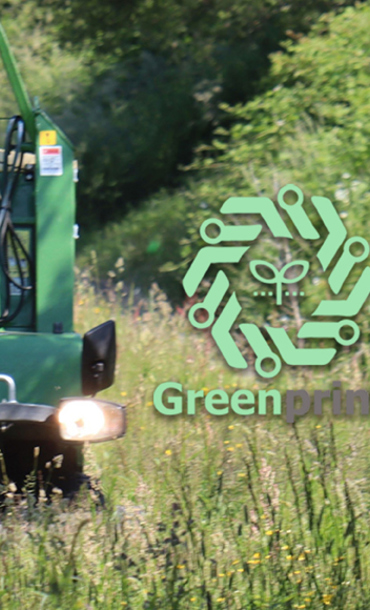
Greenprint: innovation for greener highways
Greenprint video
3 mins
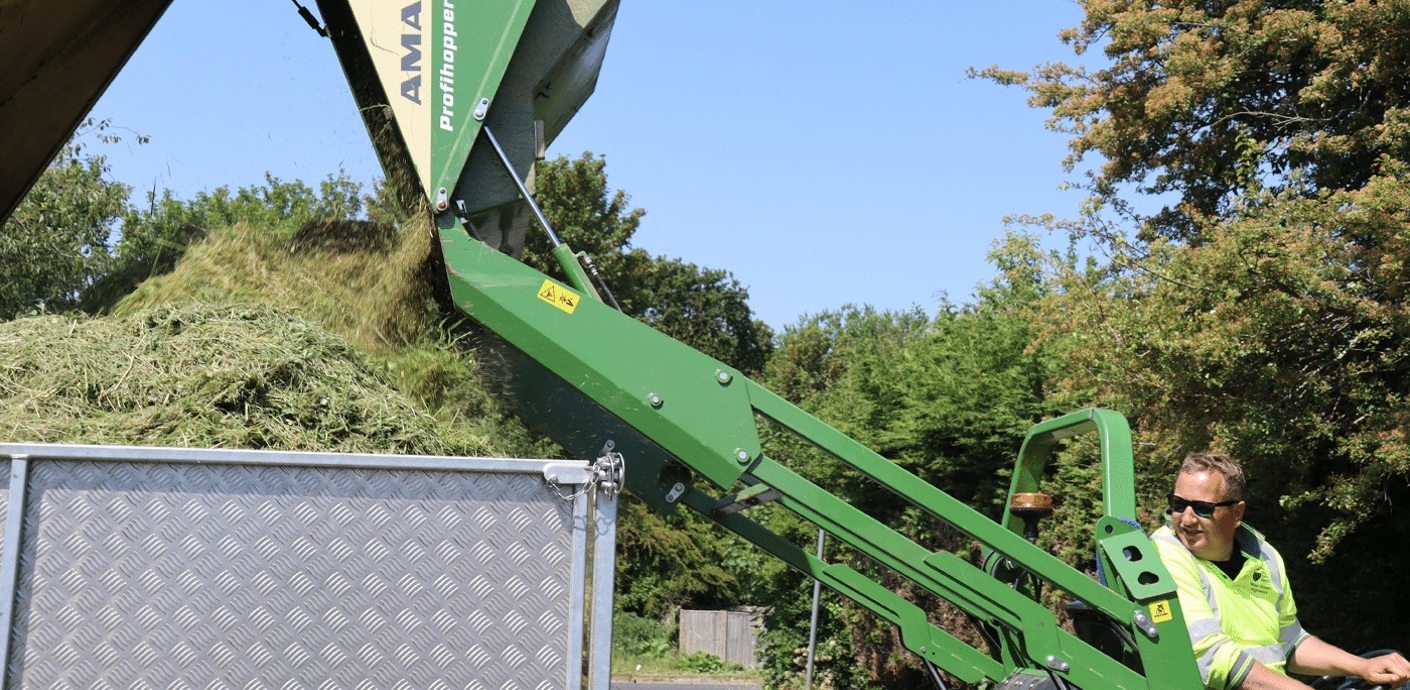
Project updates
Greenprint’s first year results
Some key achievements from year one include:
- cutting and collecting grass from 85 hectares of verge in both West Sussex and South Gloucestershire, which is equivalent to 140 football pitches
- establishing soil carbon sampling to analyse changes to the amount of carbon stored in the ground
- beginning research into the impact the project has on biodiversity at selected sites
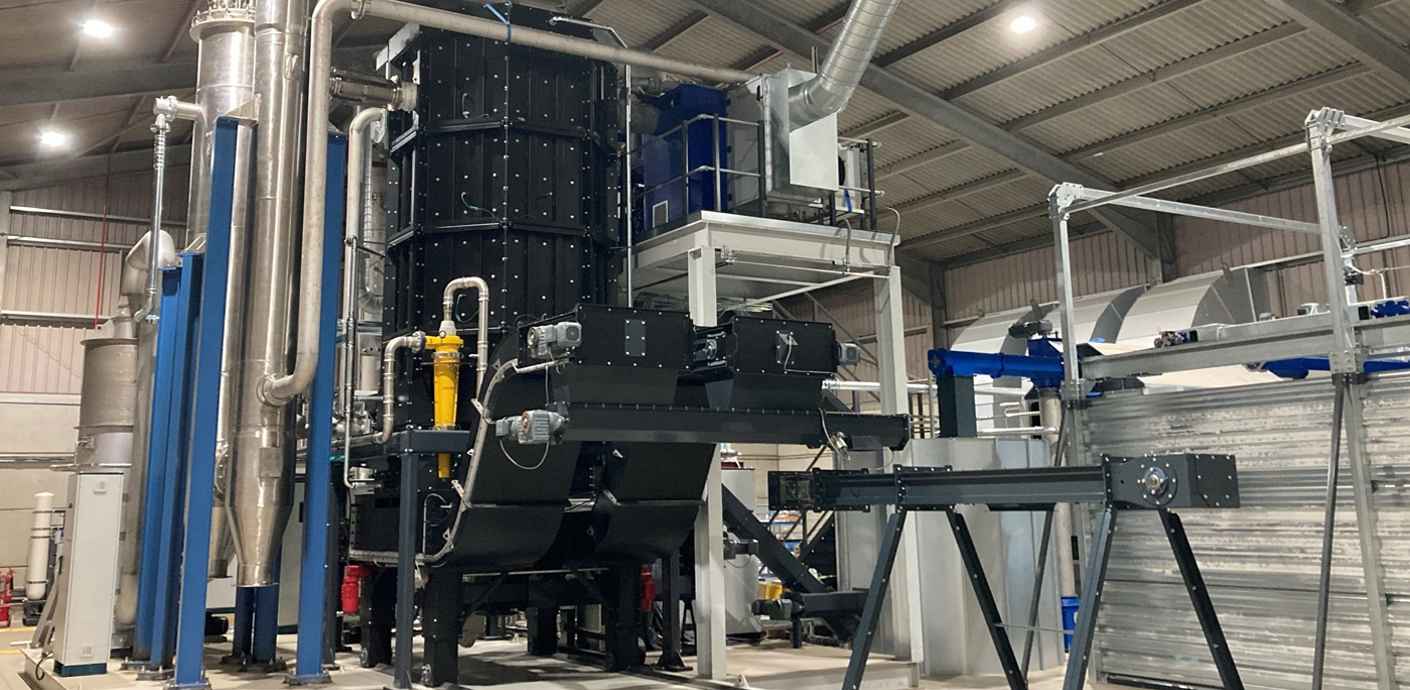
Spring and Summer 2024
Our Highways teams trialled a new ‘cut and collect’ verge maintenance routine in Horsham, Aldwick, Bersted and Pagham for the spring and summer 2024.
Under normal operations, we would cut these urban verges five times a year and leave the cuttings on the ground. This results in nutrients going back into the soil, encouraging grass growth. By ‘cutting and collecting’ the grass cuttings, we are looking to:
- slow down grass growth
- encourage a wider variety of plant life and pollinators, boosting local biodiversity and increasing the capture and storage of carbon in the soil below
We also measured the yield of cuttings and worked with the University of Nottingham, Invica Industries and Ricardo to explore ways the cuttings can be used in the production of biochar. Biochar is produced from a heating process and is a carbon-rich, charcoal-like material, which could be used in the production of road surfacing materials.
In Horsham, we trialled four cut and collects and in Aldwick, Bersted and Pagham the grass was cut and collected five times. This slight difference between the town and the three parishes meant the county council could compare the two maintenance regimes and their respective benefits.
Residents may have noticed a change in the appearance of the verges due to the changes.
Feedback from residents and other local stakeholders are welcome and will form part of the trial. Email any comments to active.communities@westsussex.gov.uk with ‘Greenprint’ as the subject, or write to us at:
Greenprint Project,
Highways and Transport
West Sussex County Council
County Hall
West Street
Chichester
PO19 1RQ.
Please include the verge’s location.
These trials are a good example of how we’re looking to decarbonise our operations in our drive to become carbon neutral by 2030 - one of our key priorities.
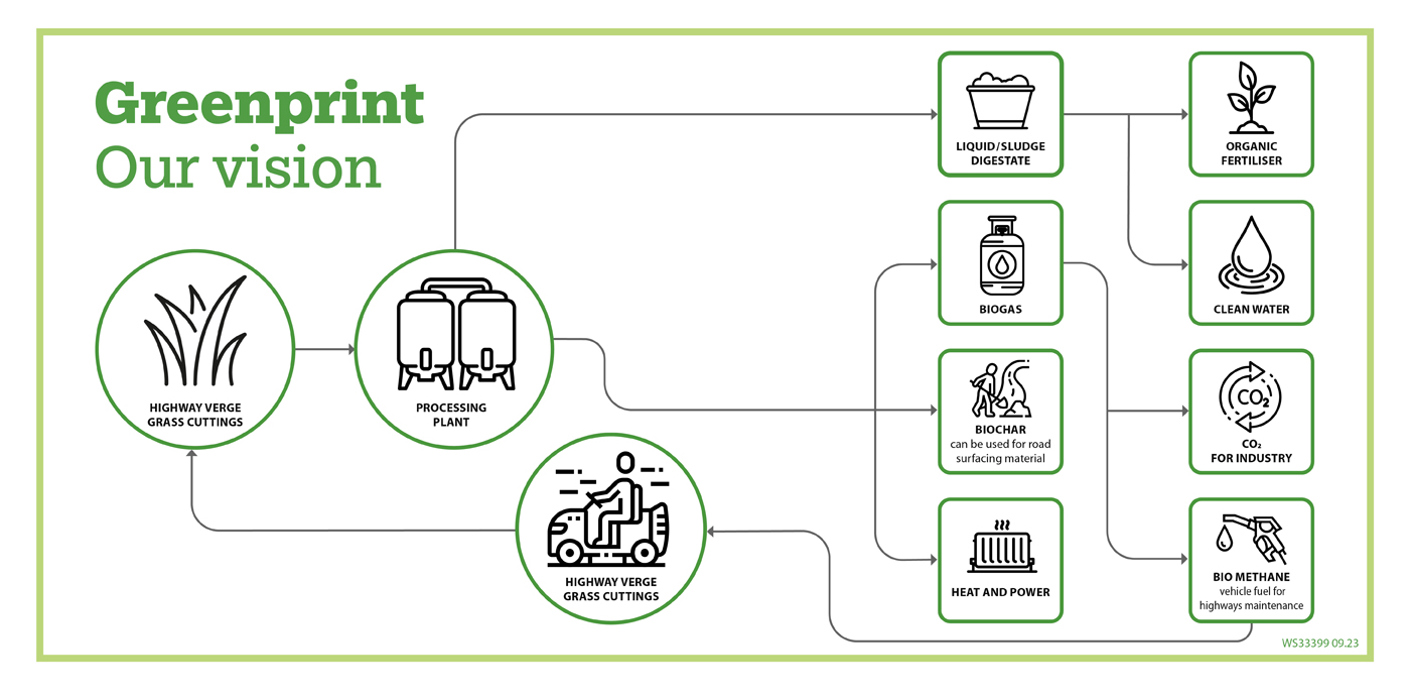
The project
The initiative is part of West Sussex County Council’s drive to become carbon neutral by 2030 - one of our key priorities. It has been funded by the Department for Transport (DfT) through the Association of Directors of Environment, Economy, Planning & Transport’s (ADEPT’s) three-year, £30million, Live Labs 2 innovation programme.
From this, Greenprint was awarded £4million to examine how changing the way we manage grass verges can provide a source of materials and fuels to decarbonise highway operations, as well as supporting other benefits, such as increasing biodiversity and resilience to the changing climate.
The Live Labs 2: Decarbonising Local Roads in the UK programme has been developed by ADEPT to achieve zero carbon local roads and highways across the UK.
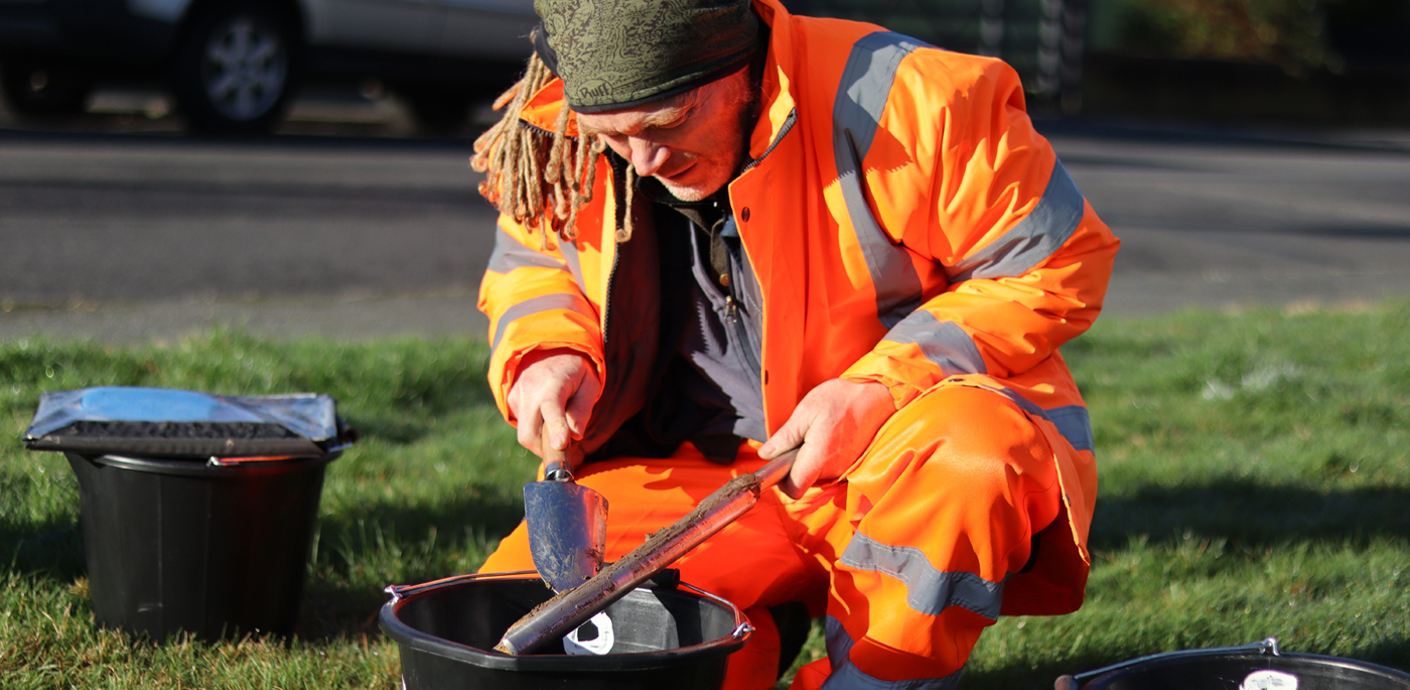
Our soil sampling and verge monitoring sites
International conservation charity ‘Plantlife’ has been carrying out baseline surveys at six verges in Horsham and six rural verges around the county, to allow us to accurately measure the effects of collecting cuttings on the soil and wildflower diversity at the sites. At these small sample sites, we will only be cutting twice this season.
The sites are at:
- the central green space in Macleod Road, Bennetts Road (not central green space)
- St Leonard's Road/Brambling Road junction
- Harwood Road, either side of the Stirling Way junction, from the footbridge at the western end to the duck road sign at the eastern end
- a 5 metre verge at Fair View
- Jackdaw Lane, between the junctions of Swallowtail Road and Serrin Way
In the rural monitoring sites, where cuts take place once a year, the cuttings will be collected at the six verges instead of being left on site.
The sites are:
- beside the B2141 South of Chilgrove
- Edburton Road, between Edburton and Fulking
- A281 between Cowfold and Shermanbury
- A29 Stane Street between Slinfold and A281
- A283 layby between Pulborough and Storrington
- A283 layby between Pulborough and Fittleworth
Joint working with South Gloucestershire
Greenprint is one of seven projects spread across the UK, from Lanarkshire to Devon, to have been awarded a share of the £30million fund provided by the DfT.
The projects were selected after pitching their ideas to a ‘Dragons’ Den style’ panel of independent experts drawn from the highways and transportation sector.
Greenprint is a joint project, working with South Gloucestershire Council and other partners, and is at the heart of both councils’ innovation and sustainability programmes.
Greenprint has been funded by the Department for Transport (DfT) through the Association of Directors of Environment, Economy, Planning & Transport’s (ADEPT’s) three-year, £30million, Live Labs 2 innovation programme.

